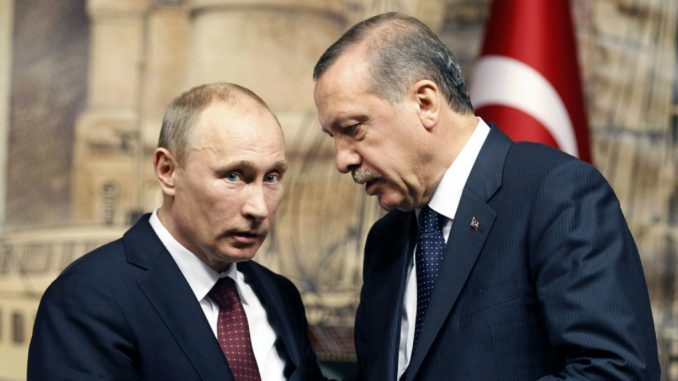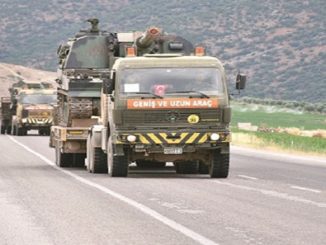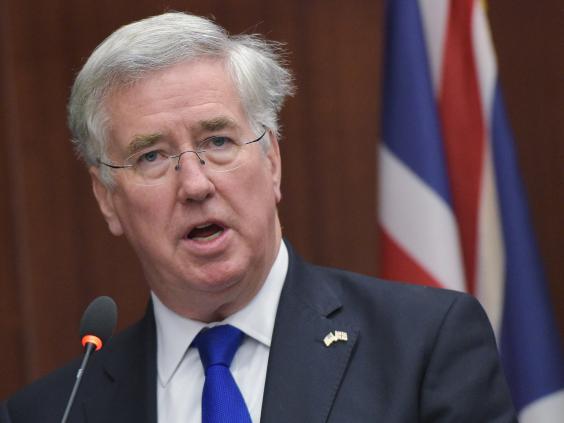
Russia’s air forces accidentally killed three Turkish soldiers and wounded 11 others during an operation against Islamic State in northern Syria on Thursday, while Moscow confirmed the incident and sent its apologies.
Turkey’s military operation in Syria named Euphrates Shield, which was launched last August to drive Islamic State militants from its border and prevent Kurdish fighters from gaining ground and strengthening their positions, has changed the balance of power in northern Syria and added more tension to the already complicated area.
Turkey operations started on August 24 alongside allied rebel forces who have managed to retake the ISIS stronghold of Jarabulus, alongside with al-Rai to the west and Dabiq city. Now their operation is focused on al-Bab as the last major stronghold for ISIS in northern Syria.
Turkey has been cooperating with Russia to fight the militants in the city, but deadly incidents and mistakes could happen.
A Russian warplane hit a building housing Turkish soldiers in Al-Bab at 8:40 am local time, the Turkish General Staff said in a statement.
“During an operation by a Russia Federation warplane against Islamic State targets in the region of the Euphrates Shield operation in Syria, a bomb accidentally hit a building used by Turkish Army units,” the statement said.
Moscow confirms, cooperation to be strengthened
Russian President Vladimir Putin expressed condolences over the accidental loss of life in the airstrike, in a phone call with President Recep Tayyip Erdogan, Kremlin press secretary Dmitry Peskov said Thursday.
“President Putin discussed… his recent phone conversation with Turkish President Erdogan. Among other things, he said that he expressed condolences to his colleague over the incident that took place early Thursday morning, when Turkish servicemen were killed as a result of incoordination in Russian Air Force airstrikes against terrorists during the joint operation to liberate al-Bab,” Peskov said.
The head of the Russian General Staff, Valery Gerasimov, also talked on the phone with his Turkish counterpart, Hulusi Akar, expressing his condolences over the incident.
The warplanes were targeting Islamic State (ISIS) sites in the al-Bab area, Gerasimov said in a statement.
Gerasimov and Akar agreed to increase cooperation and information exchange between the Russian and Turkish forces on the ground, the Russian Defense Ministry said in a statement.
The Turkish General Staff says that Moscow and Ankara will carry out a joint investigation into the airstrike.
“As far as I am concerned, there are no plans to set up a special commission to investigate this tragedy because the situation is quite clear,” a source told Sputnik.
“We carried out consultations with the Russian side immediately after the incident. We do coordinate actions [in Syria] but at present we want to make this coordination more efficient. The relevant talks are underway,” the source added.
As a response, a senior Turkish military source in Ankara said that Turkey and Russia should continue to act jointly against the threat of terrorism.
“There was a tragedy, we are extremely saddened. However, we must proceed from the fact that in our region for the fight against terrorism and for peace, Turkey and Russia should continue to act together, shoulder to shoulder. There are many who would like to see our relationship with Russia deteriorate,” the source said.
On November 2015, the Turkish Air Force shot down a Russian Su-24 bomber it said had crossed into Turkish airspace, though Moscow denied that happened.
Russia imposed a wave of economic sanctions against Turkey in response to the incident. However, the two countries have since repaired relations, and Thursday’s Kremlin statement said the two leaders had agreed to step up military coordination against Islamic State and in bringing the warring parts in Syria together to find a political solution for the six-year crisis.



